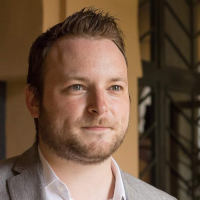The hope against hope over the past month has been that Russia and itsÂ
president, Vladimir Putin, would back down from maximalist goals over Ukraine despite the mounting evidence to the contrary.
As three-quarters of Russia’s entire military strength piled onto the borders of its southwest neighbor, it still seemed too much to think that Moscow would launch an overwhelming, full-scale offensive into the country.
That all changed on Monday. In an unhinged, 50-minute speech that was terrifying in its madness, Putin crossed the Rubicon, signaling clearly his intentions to use massive military force in Ukraine and setting in motion a chain of events from which there is now no turning back.
The tangible outcome of the Russian leader’s speech came at the end: Putin announced that Russia would officially recognize the independence of the Donetsk and Luhansk People’s Republics, the two breakaway states created by Russian agents in southeast Ukraine eight years ago. Their security would be guaranteed by Russia under mutual defense agreements.
What was far more ominous, however, was the deranged language used by Putin when describing his view of Ukraine itself, a pseudo-historical screed of more than half an hour in which the Russian leader made it clear he believes Ukraine is a fake country without either sovereignty or even a right to exist.
Beginning with a long history lesson, as is his wont, Putin first described how Ukraine only came into existence in 1920, the “creation of the Bolsheviks” and in particular the Soviet Union’s founder, Vladimir Lenin. He cursed the ungratefulness of Ukrainians for all Russia had done for them, both during and after the Soviet period, something they had repaid with “treachery in service of the West.” Referencing Ukraine’s lustration process, by which communist-era symbols have been systematically removed from the country over the past eight years, he issued a clear threat, asking, “you want decommunization? We will show you what real decommunization looks like.”
He finished with a long screed against Ukraine’s “US-sponsored military buildup,” declaring that “one country’s security cannot be achieved at the expense of another’s” – in this case, Russia’s – and accused the US of stationing “first-strike missiles” in the country aimed at Russia.
Over the course of nearly an hour, Putin laid out his true vision of what Ukraine is. He did not mention the separatist Donetsk and Luhansk republics, supposedly the issue at the heart of the current crisis, until the speech’s closing moments. Putin instead made every effort to outline that Ukraine is a hollow creation, a fake country, whose only purpose today is as a launching pad for American attempts to destroy Russia. In this paradigm, any response is justified.
And we are now at the opening stages of that response. With his recognition of the puppet republics, Putin irreparably torpedoed the diplomatic process that had been limping along until this moment. The recognition effectively destroys the Minsk agreement, the 2014 political framework under which the imperfect ceasefire of the last seven years had been observed. There can be no coming back from or undoing this move, which immediately triggered new Western sanctions and cratered the Russian stock market and currency in an initial demonstration of the economic pain Putin is prepared to have Russia bear in pursuit of what he and his coterie see as an existential threat.
The recognition also put into motion the next stages of Russia’s plan. Like clockwork, Russia’s Federation Council, its upper house of parliament, met on Tuesday in an extraordinary session to discuss Putin’s request to use military force abroad. The request was granted, in a move that gives legal authorization to the Russian president to deploy the country’s armed forces in defense of the Donetsk and Luhansk republics as “security guarantors.” Putin then stated that Russia’s recognition entailed the entire proclaimed borders of the two statelets, two-thirds of which are currently under Ukrainian control. This all but guarantees that the remainder of Ukraine’s Luhansk and Donetsk oblasts will be subjected to Russian assault – resistance to which could then easily be used to justify a far larger Russian operation in Ukraine.
Most crucially, Putin’s fundamental issues with Ukraine cannot be resolved by a limited military operation that merely formally introduces Russian forces into the Donetsk and Luhansk republics, or carves off a bit more territory for them at Ukraine’s eastern edge. He and his inner circle made it abundantly clear during the president’s Security Council theater that Ukraine cannot be allowed to continue its existence in its current form, and that there is no cost too high to bear for Russia in pursuit of this goal. As Michael Kofman and Jeffrey Edmunds wrote in Foreign Affairs on Monday, there is no chance of the Ukrainian armed forces being able to halt Russia’s advance once it occurs. The phrase “shock and awe” will be redefined if and when a full-scale invasion takes place.
Many still think that a massive war in 2022 Europe is too much to imagine. But almost every stage of the current military buildup and Russia’s behavior has been unprecedented. Their next steps will likely be unprecedented, too.
In the next few days, we would all do well to remember perhaps the most ominous phrase from Putin’s tirade: “We [Russia] have every right to take measures to improve our security. Which is what we are going to do.”

By Neil Hauer is a security analyst currently in Kyiv, Ukraine. Usually based in Tbilisi, Georgia, his work focuses on, among other things, politics, minorities and violence in the Caucasus.
This article was produced by Syndication Bureau to publish on Telegraf.






